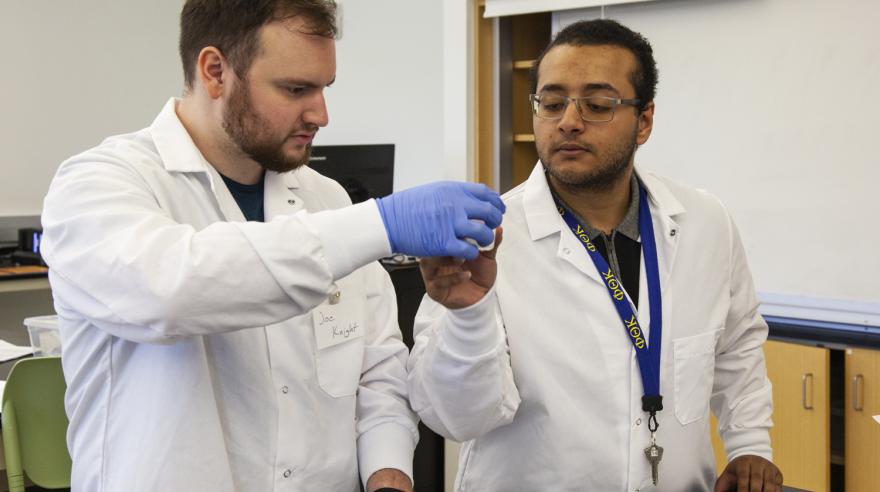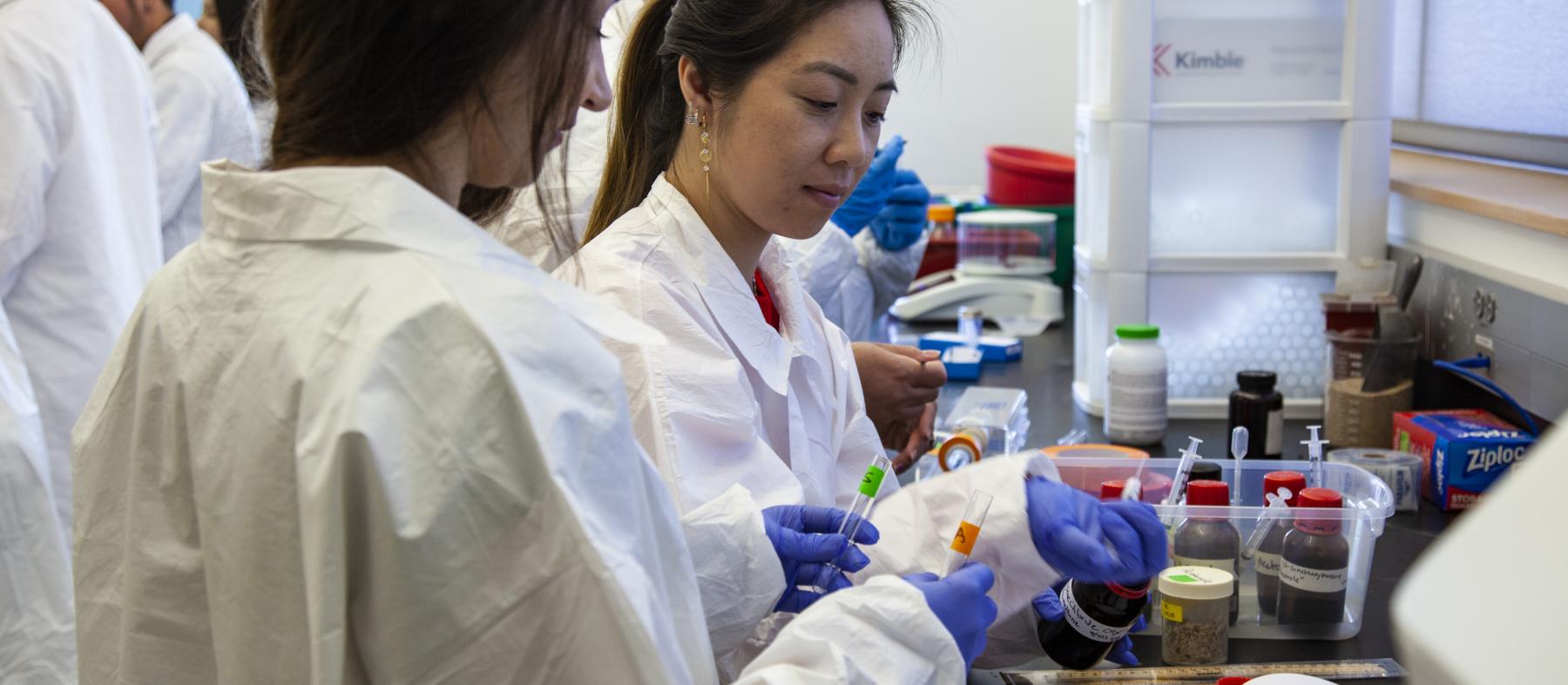Program Goals:
The QCC Liberal Arts - Chemistry Option associate degree program includes the following Program Goals:
- Provide a curriculum with an emphasis on courses that the student will need to seamlessly transfer to a bachelor’s degree program in chemistry or a pre-professional field.
- Provide a well-rounded foundational education in the liberal arts disciplines, defined as fine arts, humanities, mathematics, natural sciences, and social and behavioral sciences.
- Foster and hone high-level communication and critical reasoning skills, vital for success in a bachelor’s degree program or professional career.
Student Learning Outcomes:
Upon completion of the program, graduates will be able to:
- Demonstrate understanding of basic chemical principles, including relation of matter and energy, atomic structure, stoichiometry, chemical reactions, thermodynamics, and theory of bonding.
- Apply basic chemical principles to organic chemistry, including organic synthesis design and related lab skills.
- Incorporate the physics principles into the understanding of chemistry and apply chemical principles to biological systems.
- Employ the scientific method to investigate scientific principles, analyze and interpret data, and solve complex problems.
- Apply mathematical reasoning to explore chemical concepts, including data analysis using statistics and the correct composition and interpretation of graphs.
- Demonstrate proper use of basic laboratory equipment, adhering to laboratory safety protocols, as well as a technical proficiency in computer technology for data analysis.
- Demonstrate clear and effective communication skills, including verbal, written, graphic, and numerical, with emphasis on the presentation of experimental results.
- Utilize the broad-based liberal arts curriculum in the fine arts, humanities, mathematics, natural sciences, and social and behavioral sciences to examine the role of chemistry in society.
Admissions Process:
Admissions inquiries should be directed to admissions@qcc.mass.edu. Prospective students may apply to the program of their choice by following the enrollment steps at www.QCC.edu/enrollment-steps.
Program Admissions Requirements:
Students should note that some first semester courses carry minimum prerequisites. Refer to the program grid.
- High School Diploma or GED/HiSET.
CORI, SORI, Finger Printing & Drug Testing:
Criminal Offender Record Information (CORI) and Sex Offender Registry Information (SORI) checks are not required. Fingerprinting and drug testing are not required.
Additional Cost:
See the Program Fees page.
Technical Performance Standards:
See the Technical Performance Standards page. (Note: Not all programs have technical performance standards).
Credit for Prior Learning:
Credit for Prior Learning (CPL) allows students to use skills they already have towards a college degree or certificate. Work, life, volunteer and military experience may be translated into credit, allowing students to take fewer classes and earn their degree faster. CPL eliminates redundancies for students who have already earned credentials or mastered skills required for their program of study. Email experience@qcc.mass.edu for more information and eligibility.
Career Outlook:
Please consult the Massachusetts Career Information System at https://masscis.intocareers.org/ or the Occupational Outlook Handbook at www.bls.gov/ooh/ for specific occupational information. The CIP code for this program is 40.0501.
Transfer Articulations & Opportunities:
Prospective students may learn more about transfer articulation agreements at www.QCC.edu/agreements. More information regarding transfer opportunities is available at www.QCC.edu/transfer.
- For the purpose of the articulation agreement with Worcester Polytechnic Institute (WPI):
- It is required that students intending to pursue the Bachelor of Science degree in Biochemistry option at WPI also complete BIO 259, BIO 260, and BIO 262; students who have not completed these courses at the time of enrollment at WPI may be considered for initial admission to the Chemistry major, with the opportunity for eventual transition to Biochemistry.
- For WPI, all non-Mathematics courses require grades of “B” or higher to transfer; Mathematics courses require grades of “B-” or higher.


